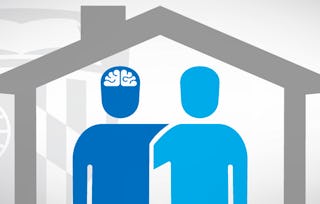This course is designed for people interested in developing skills in caregiver care, regardless of whether or not they have a background in healthcare. Throughout the training, participants
will learn to address the realities of the caregiver role, whether to improve their well-being, reduce the emotional and physical burden they face, or out of academic interest. In light of the growth of chronic conditions and the increasing demand for care, this course highlights the importance of supporting caregivers, who have often been rendered invisible and neglected. Participants will be able to understand the value of caregiver care, their context, and their role, developing key competencies to meet the challenges of caring for people with chronic conditions. Through updated content on the context of care and fundamental concepts related to caregiver well-being, topics such as anxiety, depression, loneliness, and overload that affect those who take on the role of caring for a loved one will be addressed. In addition, global research results on the profile and health of family caregivers will be presented, offering a panoramic and in-depth view of this crucial topic. The evidence and recommendations will consolidate a broad understanding of the importance of caring for caregivers in the context of chronic diseases, providing practical tools to improve their quality of life and support in their role. This course is an excellent opportunity for those who wish to acquire in-depth knowledge about caregiving in chronic situations and generate a positive impact on the well-being of caregivers.




















